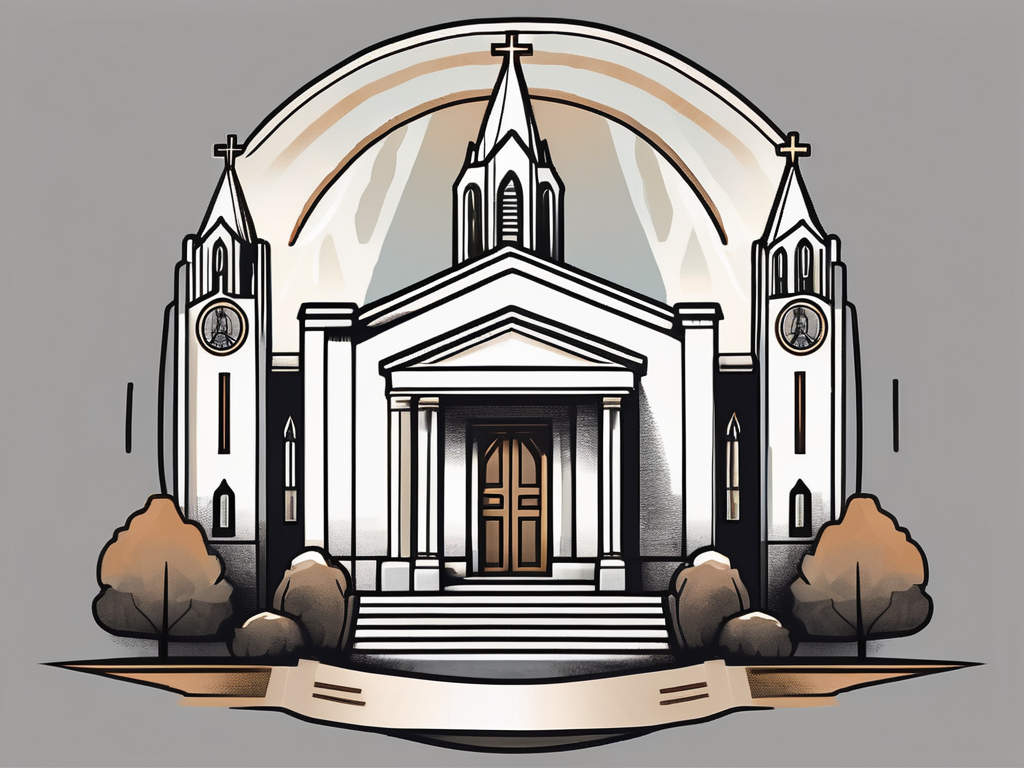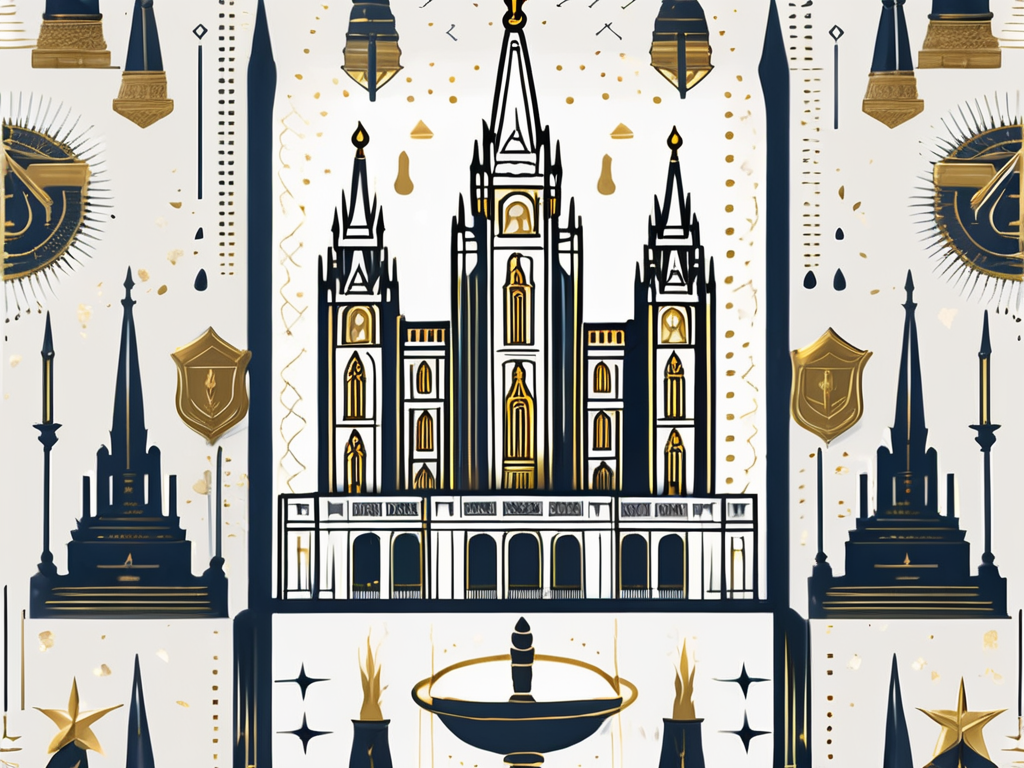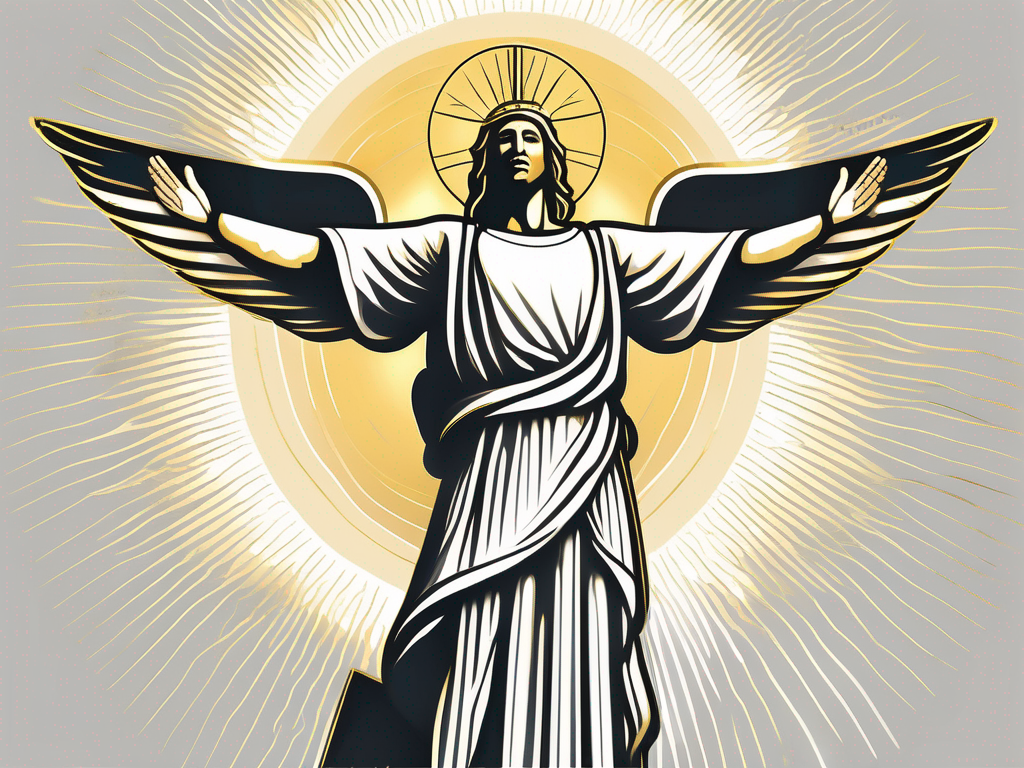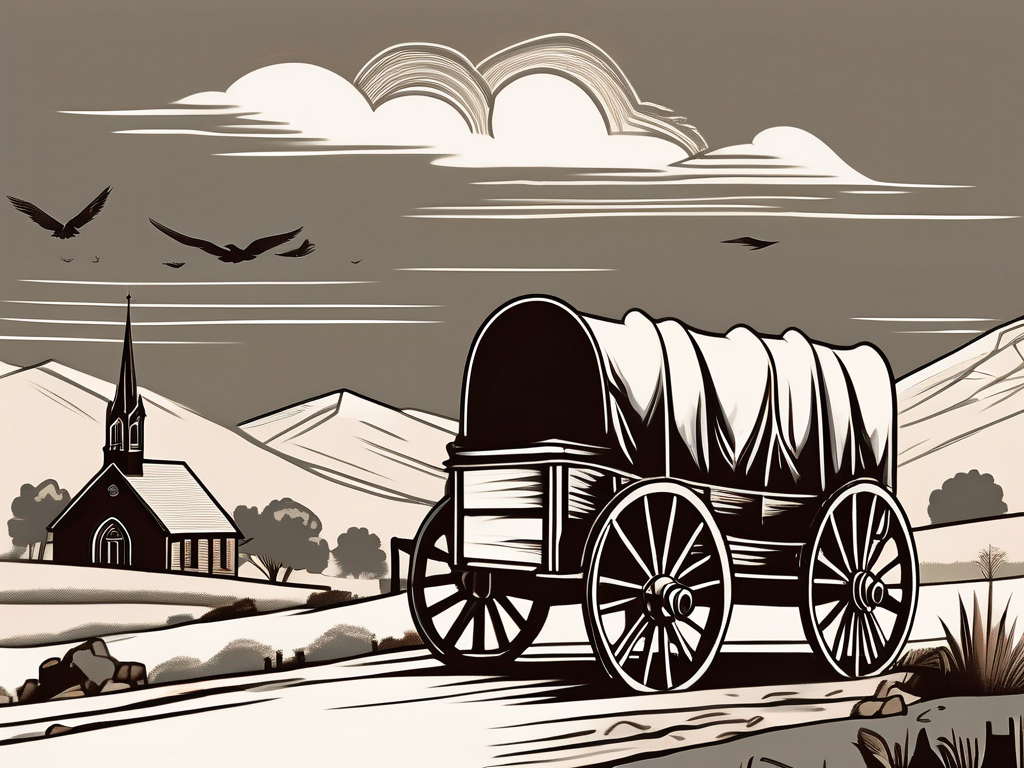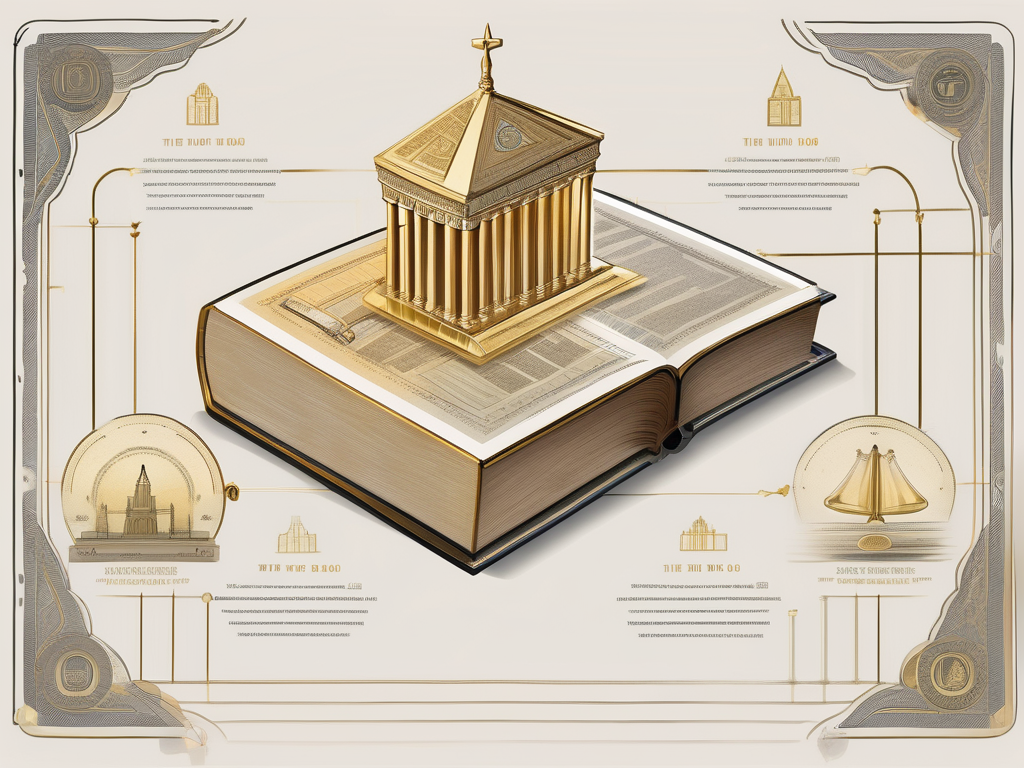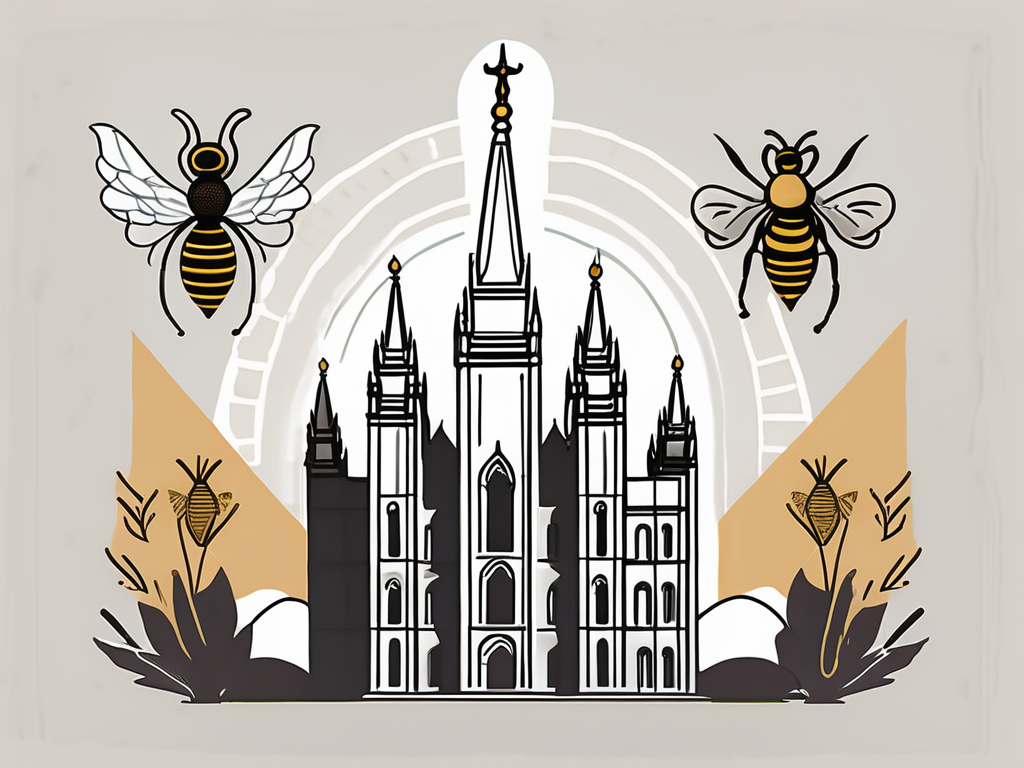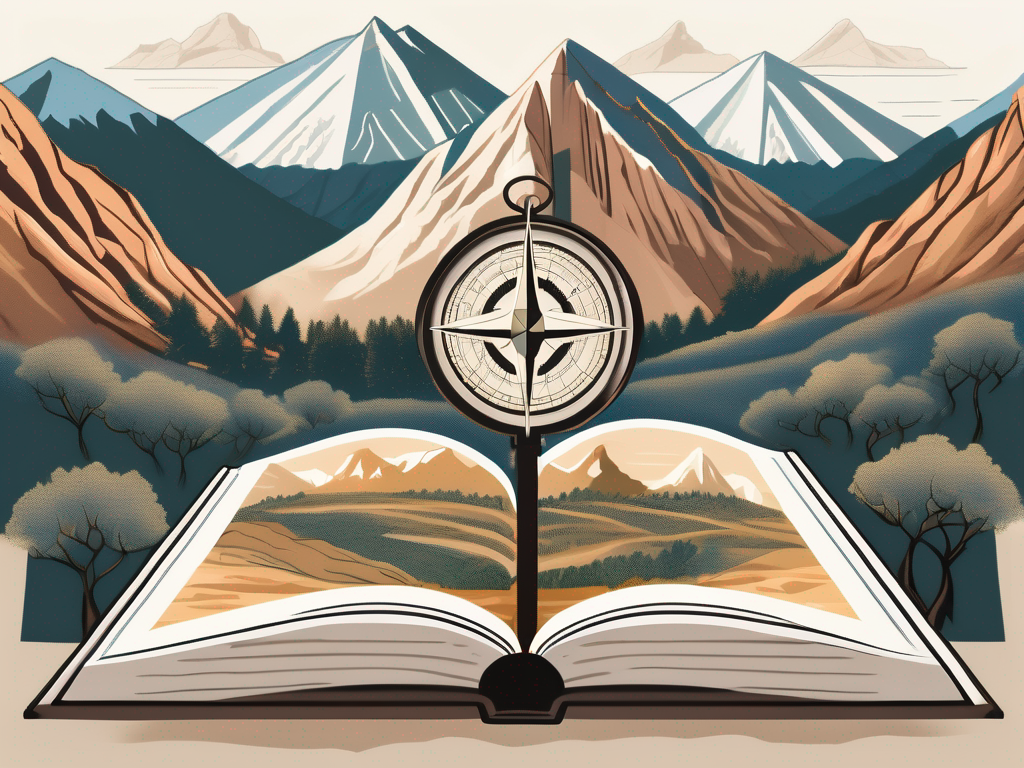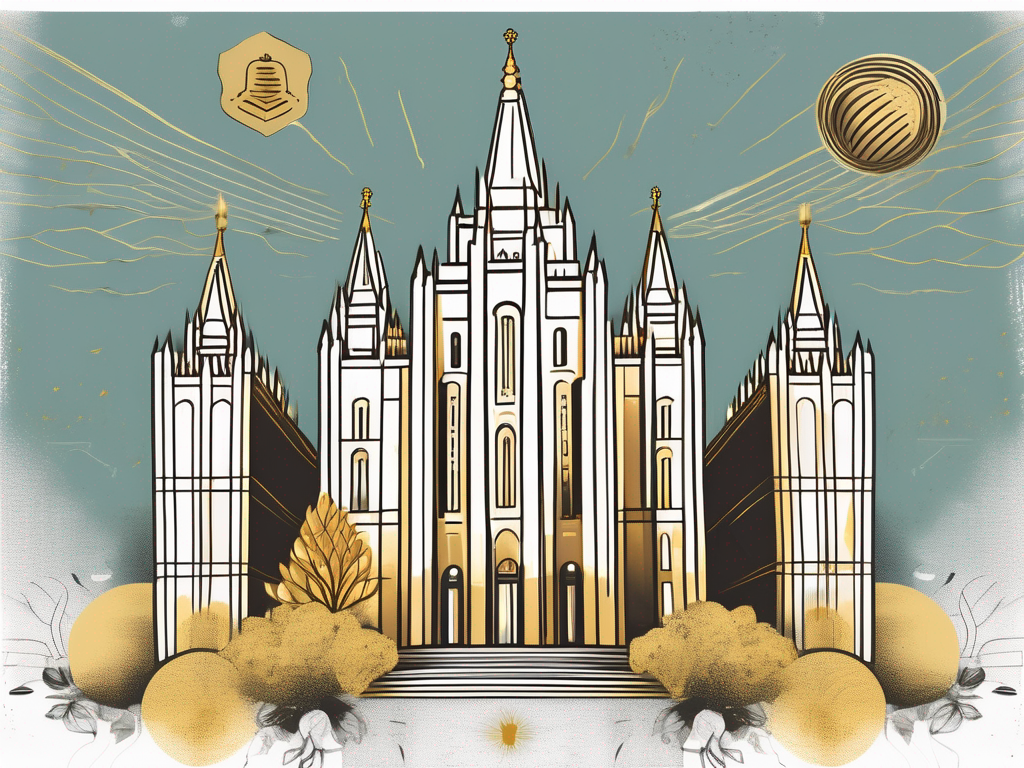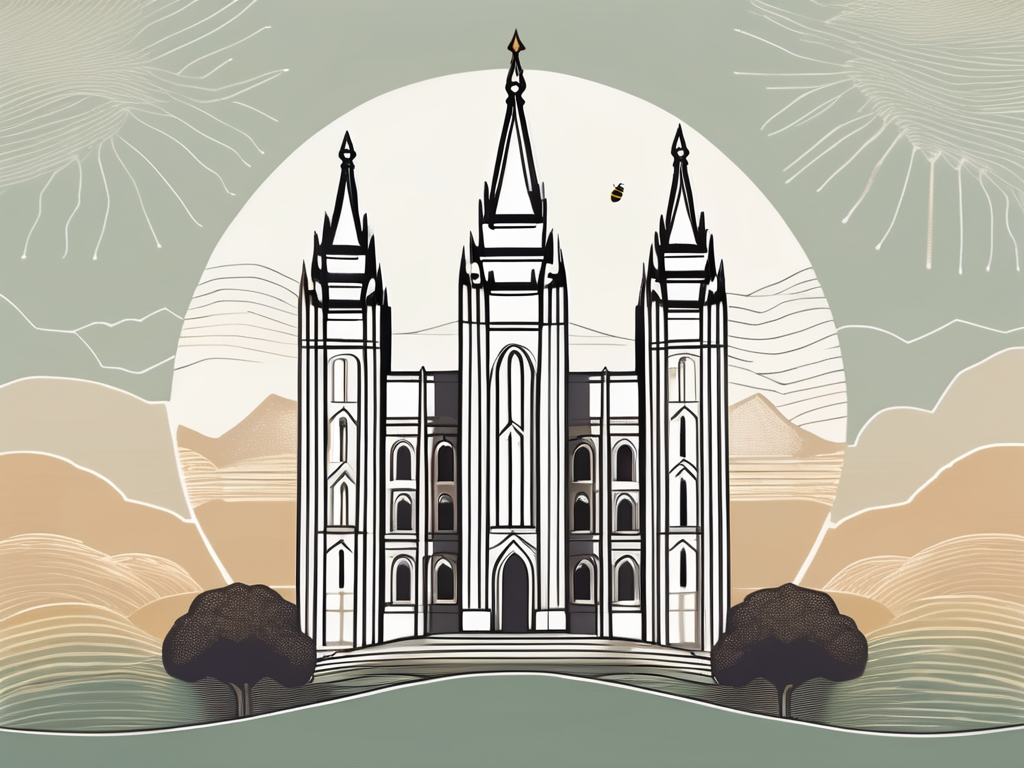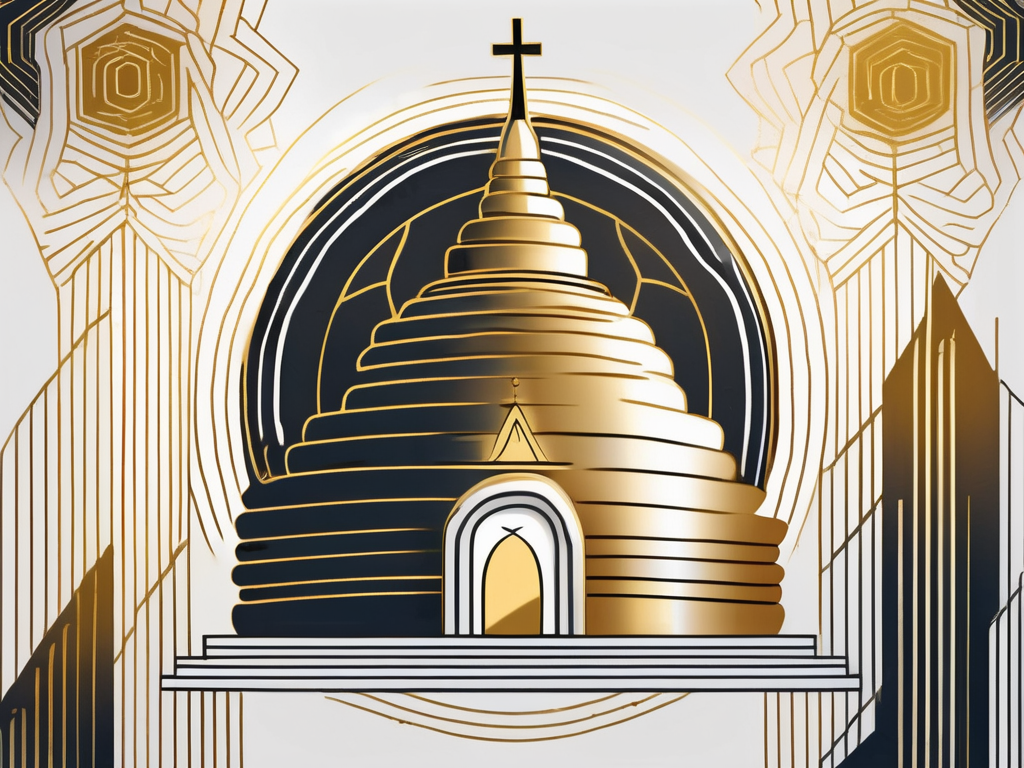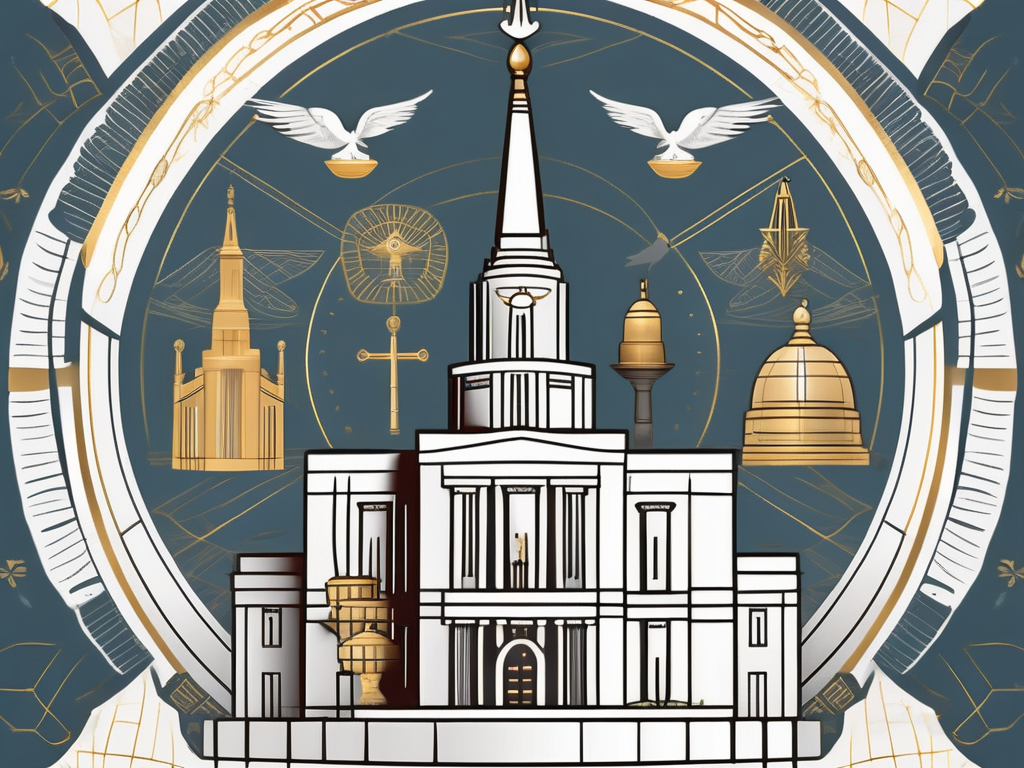Interested in learning more about the Mormon faith? In this comprehensive guide, we will delve into the role of a Mormon elder and provide a deeper understanding of their beliefs, practices, and responsibilities. So, let’s dive in and explore the fascinating world of Mormonism!
Understanding the Mormon Faith
Before we delve into the specifics of a Mormon elder, it’s important to gain a basic understanding of the Mormon faith. Mormons, also known as members of The Church of Jesus Christ of Latter-day Saints, believe in the teachings of Jesus Christ as revealed through the prophet Joseph Smith.
The Mormon faith is a vibrant and dynamic religion that encompasses a wide range of beliefs and practices. At its core, Mormonism places a strong emphasis on family, service, and personal growth. Mormons believe that families can be together for eternity and prioritize building strong relationships with their loved ones. This belief in eternal families shapes their approach to marriage, parenting, and the overall importance they place on the family unit.
In addition to their focus on family, Mormons strive to live a Christ-centered life by following the principles outlined in the Book of Mormon and the Bible. These sacred texts serve as guides for their daily lives and provide a moral compass for decision-making. Mormons believe that by adhering to these teachings, they can come closer to God and find true happiness.
Basic Beliefs and Practices
Regular attendance at church services is a fundamental practice observed by Mormons. These services, held on Sundays, provide an opportunity for worship, learning, and fellowship. The church community is a vital part of a Mormon’s life, offering support, friendship, and a sense of belonging.
Engaging in personal and family prayer is another key practice for Mormons. Prayer is seen as a way to communicate with God, seek guidance, and express gratitude. It is through prayer that Mormons believe they can receive personal revelation and strengthen their relationship with the divine.
Reading sacred texts, such as the Book of Mormon and the Bible, is also an essential part of Mormon religious practice. Mormons believe that these texts contain the word of God and provide guidance and inspiration for daily living. By studying these scriptures, Mormons deepen their understanding of God’s teachings and gain insights into how to navigate life’s challenges.
Another important aspect of Mormon belief is the concept of personal growth and self-improvement. Mormons strive to develop their talents, acquire knowledge, and become better individuals. This commitment to personal growth extends to education, career development, and overall self-improvement.
The Role of the Church in Mormon Life
The Mormon Church, officially known as The Church of Jesus Christ of Latter-day Saints, plays a significant role in the lives of its members. It provides a supportive community where individuals can grow spiritually and find guidance in their personal lives.
Through various programs and initiatives, the Church promotes both personal spiritual development and service to others. Mormons engage in a wide range of volunteer activities, both within the church and in their local communities. These service opportunities allow Mormons to live their faith by helping those in need and making a positive impact in the world.
Additionally, the Church offers a comprehensive system of education and resources to support its members. This includes seminary programs for youth, institutes of religion for college students, and adult education classes. These educational opportunities help Mormons deepen their understanding of their faith and develop strong moral values.
Furthermore, the Church provides leadership and guidance through its hierarchical structure. Local congregations, called wards or branches, are led by lay leaders who serve on a voluntary basis. These leaders, known as bishops and stake presidents, provide spiritual counsel, organize worship services, and oversee the welfare of their congregations.
In summary, the Mormon faith is a rich and multifaceted religion that places a strong emphasis on family, service, and personal growth. Through their beliefs and practices, Mormons strive to live a Christ-centered life and build a deep connection with God. The Church of Jesus Christ of Latter-day Saints provides a supportive community and resources to help its members in their spiritual journey and in making a positive impact in the world.
The Hierarchical Structure of the Mormon Church
Now that we have a general understanding of the Mormon faith, let’s explore the hierarchical structure of the Church. Within the Church, there are two types of leadership: the General Authorities and local leaders.
The hierarchical structure of the Mormon Church is designed to provide guidance, support, and leadership at both the global and local levels. This structure ensures that the teachings and principles of the faith are effectively communicated and implemented throughout the Church.
The General Authorities
The General Authorities of the Church are individuals who have been called to lead at the highest level. They include the President of the Church, who is considered to be a prophet, seer, and revelator, as well as the Quorum of the Twelve Apostles and other general officers.
The President of the Church, who is regarded as the highest authority on Earth, receives divine revelation and guidance for the entire Church. His teachings and decisions are considered to be inspired by God and are followed by millions of members worldwide.
The Quorum of the Twelve Apostles, consisting of twelve ordained apostles, serves as a governing body and provides counsel and direction to the Church. They are considered special witnesses of Jesus Christ and are responsible for spreading the gospel and ministering to members around the world.
In addition to the President and the Quorum of the Twelve Apostles, there are other general officers who hold key leadership positions within the Church. These officers include the First Presidency, the Presiding Bishopric, the Seventy, and various auxiliary leaders.
The General Authorities guide and direct the worldwide Church, providing spiritual leadership and overseeing its operations. Their teachings and counsel carry great weight and are regarded as authoritative by members of the Church.
Members of the Church look to the General Authorities for guidance on matters of doctrine, policy, and spiritual growth. They rely on their teachings and counsel to navigate their lives and strengthen their relationship with God.
Local Leadership
At the local level, the Mormon Church is organized into congregations known as wards or branches. Each ward is led by a bishop or branch president, who is responsible for the spiritual well-being and temporal needs of the members within their jurisdiction.
The bishop or branch president is called by inspiration and serves as the presiding authority in the ward or branch. They are responsible for overseeing the administration of the Church within their local area and ensuring that the needs of the members are met.
These local leaders, along with their counselors and other auxiliary leaders, work closely with individual members to provide guidance, support, and opportunities for service. They strive to create an environment where individuals can grow spiritually, develop their talents, and serve their fellow members.
Through their leadership, they help foster a sense of community and encourage personal growth among the congregation. They conduct regular worship services, organize activities and events, and provide counseling and assistance to those in need.
The local leaders also play a vital role in the welfare and well-being of the members. They oversee programs that provide temporal assistance, such as food and employment resources, to those who are struggling. They offer a listening ear, a helping hand, and a shoulder to lean on for those facing challenges.
Overall, the hierarchical structure of the Mormon Church ensures that there is a clear line of authority and leadership from the highest levels to the local congregations. This structure allows for effective communication, unity, and the ability to meet the diverse needs of the Church members.
The Role and Responsibilities of a Mormon Elder
Now let’s focus on the role and responsibilities of a Mormon elder. In the Mormon Church, an elder is a priesthood office conferred upon worthy male members who have reached a certain age and have demonstrated a commitment to living the principles of the gospel.
Mormon elders play an essential role in the Church’s operations and are assigned various responsibilities. They may serve as teachers, leaders, or mentors within their local congregations. Elders are also authorized to perform ordinances, such as baptisms, blessings, and administering the sacrament.
Additionally, Mormon elders are encouraged to be actively involved in other aspects of Church service. This can include participating in humanitarian efforts, supporting missionaries, and providing guidance to young adults and families within the community.
One of the key duties of a Mormon elder is to serve as a teacher. They are responsible for instructing and sharing the principles of the gospel with fellow members. This can involve preparing lessons, delivering sermons, and facilitating discussions during Church meetings. Through their teachings, elders help to strengthen the faith and understanding of the congregation.
Another important responsibility of a Mormon elder is to provide leadership within their local congregation. They may be called to serve as a bishop, branch president, or counselor in these leadership positions. In these roles, elders are responsible for overseeing the spiritual and temporal welfare of the members, ensuring that the Church functions smoothly, and providing guidance and support to those in need.
Community and Outreach Efforts
As ambassadors of their faith, Mormon elders actively engage in community and outreach efforts. They strive to share the teachings of Jesus Christ and promote unity, love, and understanding among individuals of all backgrounds.
Whether it’s organizing community service projects, participating in interfaith dialogues, or lending a helping hand to those in need, Mormon elders are at the forefront of building bridges and fostering a spirit of cooperation.
Mormon elders often participate in humanitarian efforts, both locally and internationally. They may be involved in disaster relief projects, providing aid to those affected by natural disasters or other emergencies. Additionally, they may contribute to ongoing humanitarian initiatives, such as clean water projects, education programs, and healthcare initiatives.
In their outreach efforts, Mormon elders also strive to build relationships with individuals of different faiths. They actively seek opportunities to engage in interfaith dialogues, where they can share their beliefs and learn from others. By fostering understanding and respect, they contribute to a more harmonious and inclusive society.
Furthermore, Mormon elders are known for their willingness to serve others. They are often seen volunteering their time and skills to help those in need, whether it’s assisting with home repairs, providing meals to the homeless, or offering emotional support to individuals facing challenges. Their acts of service are a reflection of their faith and commitment to following the example of Jesus Christ.
In conclusion, the role and responsibilities of a Mormon elder extend beyond the walls of the Church. They are dedicated to serving their local congregations, teaching the gospel, and providing leadership. Additionally, they actively engage in community and outreach efforts, striving to make a positive impact on the lives of others and promote unity and understanding among all people.
The Path to Becoming a Mormon Elder
Curious about how one becomes a Mormon elder? Let’s explore the requirements and qualifications for this significant role.
Requirements and Qualifications
To become a Mormon elder, one must first be a baptized member of The Church of Jesus Christ of Latter-day Saints. They must also be deemed worthy by their local leaders and demonstrate a commitment to living the principles of the gospel.
Additionally, Mormons elders are expected to uphold a high moral standard, be actively engaged in religious practices, and exhibit a willingness to serve and uplift others.
The Ordination Process
Once an individual has met the requirements and qualifications, they can be ordained as a Mormon elder. This ordination occurs during a sacred ceremony, where authorized priesthood holders lay their hands on the candidate’s head and confer the responsibilities and authority associated with the office of an elder.
Following their ordination, Mormon elders continue to receive ongoing training and counsel from Church leaders to help them fulfill their responsibilities and grow in their spiritual journey.
The Challenges and Rewards of Being a Mormon Elder
Being a Mormon elder comes with its fair share of challenges and rewards. Let’s explore some of the common experiences faced by elders in their service to the Church.
Balancing Church and Personal Life
As with any significant commitment, balancing Church responsibilities with personal life can sometimes be challenging. Mormon elders often juggle various roles within the Church while also managing work, school, and family obligations.
However, many elders find that through effective time management and prioritization, they are able to maintain a healthy balance and experience personal growth both within and outside of their church service.
Spiritual Growth and Fulfillment
Despite the challenges, being a Mormon elder offers immense opportunities for spiritual growth and personal fulfillment. The service-oriented nature of the role allows elders to develop leadership skills, strengthen their faith, and witness the positive impact they can have on the lives of others.
Through their service, Mormon elders often find a deep sense of purpose, a stronger connection with God, and an increased capacity for love and compassion towards those around them.
In conclusion, a Mormon elder is an integral part of the Mormon Church. They play vital roles in the spiritual development of individuals and the community as a whole. By understanding the beliefs, practices, and responsibilities associated with this role, we can gain a deeper appreciation for the faith and the individuals who dedicate their lives to serving as Mormon elders.
